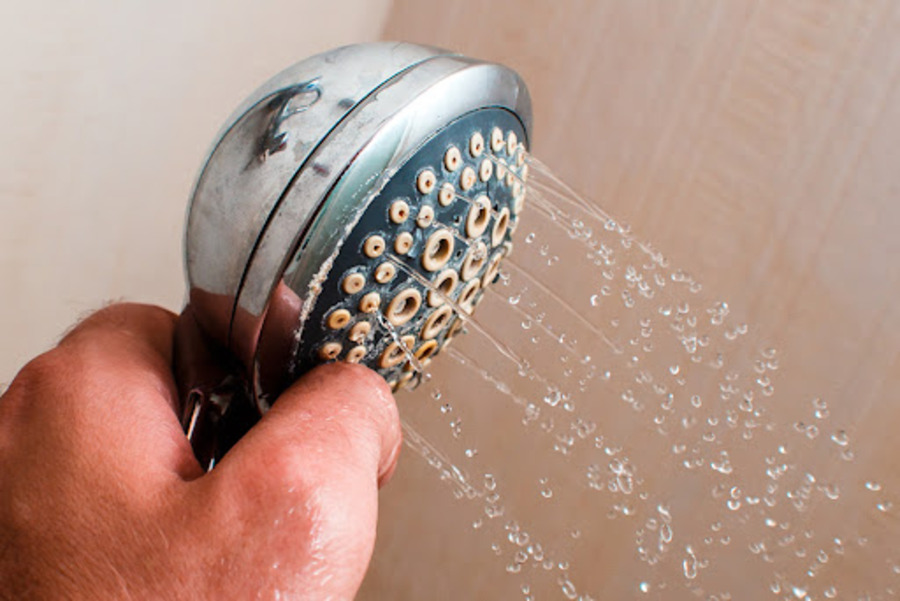
Do you ever notice the white or brown build-up on your showerhead or around your faucets? This is a tell-tale sign of hard water in your home. Hard water refers to water with high levels of minerals, such as calcium and magnesium. Although not harmful to your health, hard water can cause significant damage to your appliances and plumbing over time. Many areas in Wisconsin, specifically the southeast region of the state, have significantly hard water. Today we’ll look at the effects of hard water on your appliances and plumbing and how to minimize or prevent the impact.
Scale Buildup
The minerals in hard water can create scale build-up in your plumbing fixtures and appliances like your water heater, dishwasher, and washing machine. Over time, this scale can cause blockages that restrict or even completely block the water flow. This can significantly reduce efficiency and lead to replacing the appliance or repairing the plumbing. Regularly removing build-up by cleaning your faucets with vinegar, lemon juice, or an all-purpose cleaner can prevent blockages and the need for costly repairs.
Corrosion
Hard water can also lead to corrosion in your plumbing system and appliances. The high mineral content can create a chemical reaction with your metal pipes and appliances. Over time, the corrosion can eat away at the metal, leading to leaks, damages, or even complete malfunctions. Signs of corrosion in your system could include reduced water pressure or water discoloration. In that case, it’s important to take action as soon as possible by calling your local plumber before the problem worsens.
Shortened Lifespan of Appliances
The scale build-up and corrosion caused by hard water can ultimately lead to a shortened lifespan of your appliances and plumbing. To maintain their integrity and efficiency, you may need to replace them sooner than expected, leading to additional expenses. Take preventive steps such as regularly cleaning your faucets and installing a water softener to avoid the extra cost. Most water softener systems use a salt-based filtering process that removes the minerals from your water before it reaches your pipes or appliances, lowering the risk of blockages, corrosion, and scale build-up.

Reduced Water Pressure
As the mineral deposits from hard water build up in your plumbing fixtures, it can cause a reduction in water pressure. You may notice your shower head is less powerful than it used to be or that your tub takes longer to fill. The simplest solution to this problem is to clean the affected fixtures with a mixture of vinegar and baking soda. This can help break down any deposits on the faucets that might be causing the reduced water pressure. If you find yourself dealing with this issue frequently, however, it’s best to look into other preventative measures to stop the mineral build-up before it happens.
Lower Energy Efficiency
If your water heater has a buildup of minerals, it can take much longer to heat water. So the heater works harder to produce hot water, leading to higher energy bills. Additionally, the reduced efficiency can lead to more frequent maintenance and repairs. To address this issue, it’s important to have a filter or water softener installed to remove minerals before they enter your heater. This will save you money on energy bills and help extend the life of your water heater.
The impact of hard water on your appliances and plumbing can have significant consequences for your wallet and comfort. Preventing mineral deposits with the use of a water softener, regular maintenance, and cleaning can help you avoid costly repairs or replacements. If you suspect your home has hard water, call a professional. Contact your friends in the plumbing business at Benjamin Plumbing to decide which products or solutions are best suited for your home and family. By addressing hard water, you can extend the lifespan of your appliances and plumbing and enjoy softer, cleaner, and better-tasting water in your home.

